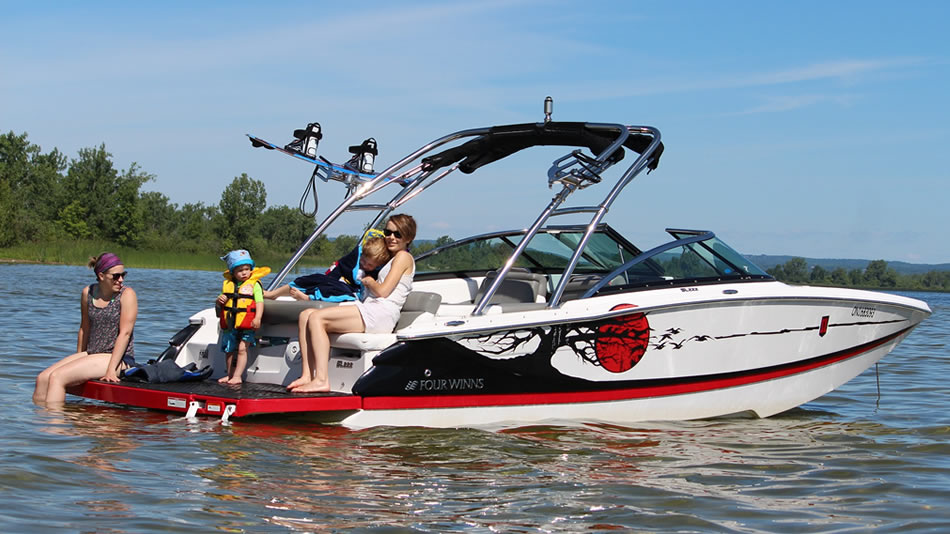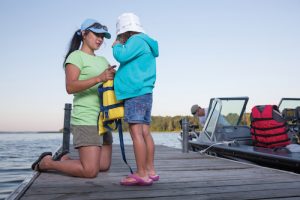Safe Boating with Toddlers & Kids

Safe boating with kids, compared to safety during other recreational activities ashore, really comes down to one thing: location. For starters, help on dry land is typically minutes away, while assistance afloat can easily take an hour or more. It’s also possible to walk away—literally—from most shoreside danger. This isn’t so afloat. Whether you’re 500 feet or 5 miles from shore, swimming away from a problem is never a good solution. Fortunately, many resources are available to assist boaters, ranging from a simple tow to a large, coordinated rescue.

5 Tips for Safe Boating with Kids
- Expect the unexpected—pack more, even for just for day boating.
- Always be prepared for call for help—use your cell phone or a VHF radio.
- Spend time teaching your kids to improve their swimming skills.
- Ensure your child always wears a life jacket, for swimming (if needed), watersports and cruising.
- Establish rules upfront and always practice safe boating habits onboard and in the water.
Expect the Unexpected
Kids don’t have the body mass, patience or maturity to just “tough it out.” Warm, dry, hydrated and well-fed kids are more easygoing when circumstances become difficult. Comfortable adults make better decisions too. For a day boating, pack as you might for an overnight ashore, including important medications and extra prescription eyewear.
Alcohol is the leading contributing factor in Coast Guard accident statistics. A non-imbibing skipper manages situations with a clear mind, but you should also designate someone else to be alcohol-free to manage children.
Calling for Help Afloat
Your cellular phone is just one way to call for help. Store contacts for both Sea Tow and TowboatUS dispatchers; 911 is a good telephone resource for anything beyond needing a tow.
The VHF radio is your primary safety lifeline afloat. Register for an MMSI number and learn how to use the radio’s distress function to quickly call for help from every nearby vessel, including the Coast Guard and marine police.
For the cost of a cheap smartphone, a Personal Locator Beacon alerts the Coast Guard via satellite, provides your position and sends the cavalry. For the cost of an average smart phone, an EPIRB does the same thing with less required of the operator. Just be sure to register PLBs and EPIRBs with NOAA.
View the full article here.
